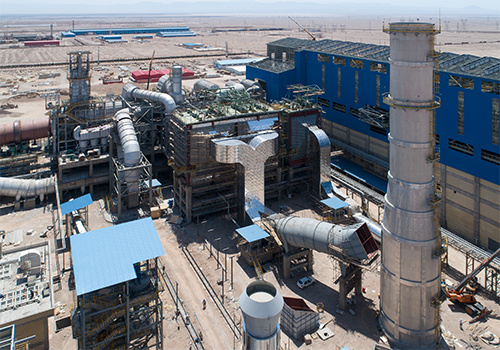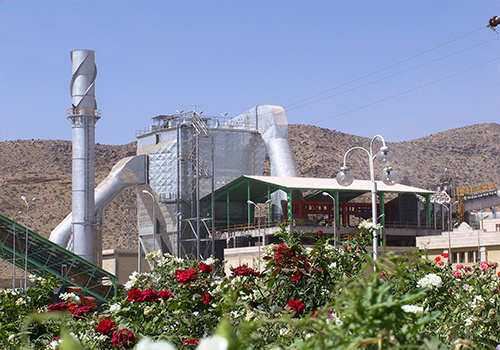Electrostatic Precipitator (ESP & Wet ESP)
A device which separates particles from a gas stream by passing the carrier gas between electrodes across which a unidirectional, high-voltage potential is placed. The particles are charged before passing through the field and migrate to an oppositely charged electrode. These devices are very efficient collectors of small particles.
The ESP is provided with longitudinal bottom hoppers or, if desired, with pyramidal hoppers. For special processes, the precipitator can be supplied with a flat bottom. The hoppers may be provided with heating elements.
Due to the high working temperatures, the precipitator is mounted on a support in a way that ensures minimum forces on the precipitator casing and support during repeated thermal expansions and contractions.
With more than 50 ESP installations in Iran and manufacturing more than 50,000 tonnes, we have the experience to understand your individual process requirements. We will help you to design the most optimal ESP configuration that adheres to stringent emission regulations for your plant.
Our ESP solutions offer the lowest cost of ownership and have been engineered to deliver 100% efficiency and performance. Our flexible designs offer a host of benefits, including a minimal equipment footprint, reduced energy consumption, simpler maintenance requirements and lower operating costs.
Wet ESP
The basis of the WESP almost same as ESP (Electrostatic precipitator).
Due to the fact that the function of these filters is absorption of liquids, there are differences in the shape of the electrodes and absorption plates relative to the ordinary ESP and instead of the impactor systems, rinsing systems are used.
Typically, the material of the body and internal parts are specific according to the application and design.
In these filters, the dust and particles are glued to the adsorbing tube (or plates), discharge electrodes suspended down through each vertical axis of each tube. By applying high-voltage, an electrical field is produced which charges electrically the aerosol and dust particles. Due to this fact they migrate to the collecting electrodes. The particles separated from the gas are removed continuously together with the condensate at the bottom.







